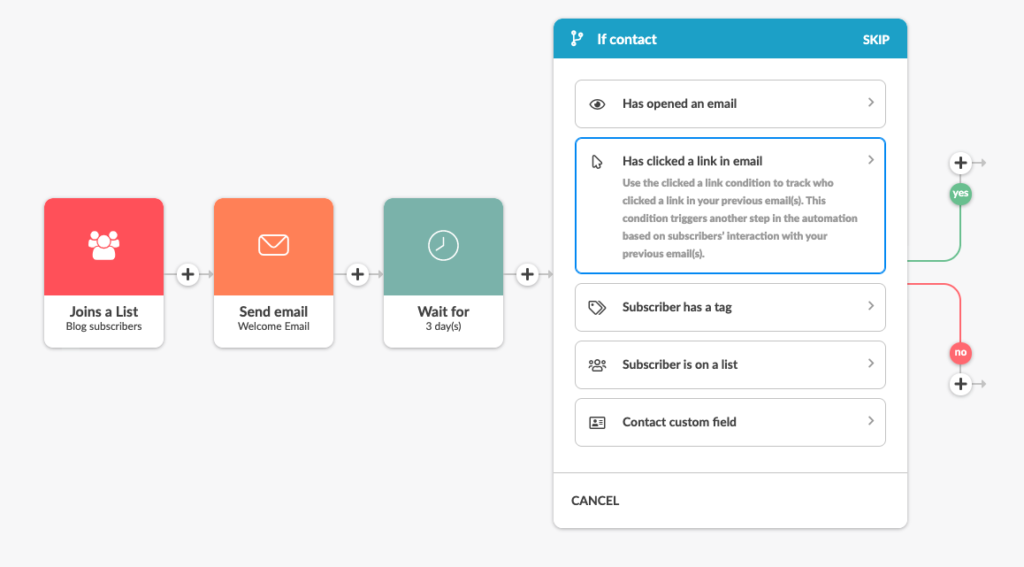20 Recommended Suggestions For Choosing Email List Sellers
Wiki Article
What Are The Important Things I Need To Think About Before Buying A Pathologist E-Mail List?
To ensure you're getting the most accurate data that is compliant with the law and meets your marketing objectives it is essential to think about a few key factors. Below are the primary elements to take into consideration: 1. Data accuracy and quality
The source of the data: Confirm that the company providing email lists has data gathered from reliable sources like professional directories or healthcare databases. This will ensure that the addresses on the list are accurate and current.
Verification process: Ensure whether the list has recently been verified. Providers must have a system in place for verifying email addresses and removing any inactive or invalid addresses. Lists of high quality are less likely to bounce, which leads to better delivery.
Segmentation and Customization Look for lists that offer segmentation options, such as by geographic area, subspecialties (e.g., clinical pathology, forensic pathology), years of experience, or hospital affiliations. Customization lets you focus your marketing, increasing the likelihood of reaching the right people.
2. Legal Regulations
Data Privacy Regulations â Ensure your email list is compliant with data privacy laws in Europe (GDPR) as well as the U.S. (CCPA), and in any other pertinent. The data of pathologists must be collected and handled in accordance with applicable laws while protecting the rights of each patient.
CANSPAM Act - If you are targeting U.S. Pathologists or live in the U.S.A. Make sure that the email list complies the CANSPAM Act. This law governs commercial emails. Failure to comply could lead to heavy penalties.
Verify that emails collected from the list are ones that have valid opt-in permission. This ensures pathologists consented for promotional content to be sent which reduces the possibility of receiving spam complaints.
3. Provider Reputation
Credibility of the Provider: Search for a reliable business that has a long-standing tradition of supplying accurate and dependable lists. Read reviews, seek reviews, and review the references of other healthcare marketers to gauge the reliability of the service.
Transparency. The service provider must be transparent about the way they gather and update their data. Avoid companies that are unclear regarding the source of their lists of email addresses.
Customer Support: Look for an organization that provides a solid customer support should you need help with your list of questions or technical problems.
4. Cost as well as Return on Investment (ROI).
Pricing Model: Take a look at different pricing models--whether it's pay-per-contact, a flat fee for the list, or a subscription model. Assess whether the cost aligns with your marketing budget as well as the possible return on investment (ROI).
Refund Policy. Some service providers offer refunds for emails that don't conform to their standards or are invalid. Make sure that the provider has a clearly-defined return or exchange policies.
Value for Money: Compare the quality of the list, the degree of segmentation, as well as the additional services provided (e.g., CRM integration and campaign management) against the cost. If the list is not delivered, it may not be useful.
5. Ownership and Use of Data
License Rights and Usage Rights Determine if the list will be used only once or if you'll own it to continue campaigns. Certain providers offer a license for one-time usage while others permit unlimited use. The latter can be better suited for long-term campaigns.
Shared Lists vs. Exclusive lists: Find out whether the email list you own is exclusive to you or if it's shared by others. Lists shared: Determine if you'll be the sole owner of a list of email addresses, or if it's given to another buyer. Exclusive lists may lead to a more positive response as the recipients won't be subjected to an overwhelming number of emails from different sources.
6. Data Integration and Format
Compatibility: Determine whether the email list is able to easily integrate into your CRM or other marketing email tools. The data should be provided in a widely-used format, like CSV or Excel. The information can be easily imported.
Data Segmentation: Assess the ease to segment and filter the list once it is integrated. Effective segmentation could lead to personalized emails that have higher response and open rates.
7. Ethical Questions
Relevance: Pathologists work in highly-specialized areas. Make sure that your message products or services are relevant for their needs. Sending irrelevant information can damage the image of your business and can cause complaints about spam.
Spam reports are often caused by sending unwanted emails or other content. Be sure to plan your campaigns with care and make sure you use the list in a responsible manner to safeguard your reputation.
Conclusion
If you're doing it right purchasing an email list of pathologists is a very powerful marketing tool. Prioritize the quality of data as well as legal compliance and the reputation of the provider to maximize your outreach potential. Ensure that the list is tailored to your specific requirements and that you adhere to rules regarding data privacy and ethical marketing practices. These guidelines will help you create effective email campaigns for pathologists. Check out the pro pathologist email list for website info.

What Are The Things I Need To Consider Prior To Purchasing A List Of Oncologists?
When purchasing an oncologist email list, you need to take into consideration factors that will ensure the list is high-quality legal and tailored to your particular objectives in marketing. Here are a few important aspects to take into consideration. Data Quality and Accuracy
Source: Make sure that the source for the email list is reliable, such databases or professional associations in healthcare. Avoid lists that are untrusted or from unknown sources as they may contain inaccurate information.
Verification Process: The list provider should have a robust verification procedure to ensure the email addresses are accurate authentic, current, and valid. The list must be updated regularly and cleaned to remove duplicate, invalid or inaccurate contacts. This will increase deliverability.
Segmentation Options: A good oncologist list will offer segmentation options. Being able to filter the list by subspecialties (e.g., pediatric oncology, surgical oncology, hematology-oncology), geographic location, years of experience, or institution allows for more targeted outreach, increasing the likelihood of engagement.
2. Conformity to Legal Regulations
Data Privacy Regulations â Ensure your email list is in compliance with data privacy laws like the General Data Protection Regulations of Europe and the California Consumer Privacy Acts of the U.S. The email address should be processed and gathered in a legal manner and in a way that respects the privacy of data.
CANSPAM Act Compliance - For campaigns that originate in America, check that the mailing list complies with the CANSPAM Act. The CANSPAM Act governs commercial emails. It is recommended to include an opt-out button in your emails, and make sure your subject lines are accurate and ensure that your recipients are not misled. Non-compliance will lead to penalties and damage to your brand.
Opt-In Consent: Confirm that the list of email addresses was collected via opt-in consent. Oncologists must sign a consent form in order to be able to receive marketing material. It is a method to ensure privacy laws are followed and reducing the chance of legal concerns or complaints about spam.
3. Provider Reputation
A reputable list provider: You should buy your information from a list provider who has a good reputation in the field. Examine their credibility by looking up their credentials and scouring for reviews, testimonials and cases studies. Established companies are more likely to provide complete and accurate lists.
Transparency. The service provider must provide transparency about the data source as well as the frequency with which they are updated and the verification methods they employ. Insufficient transparency is a red flag and may indicate poor data quality.
Customer Support: Choose a provider that offers responsive customer service in the event that you require assistance with the checklist or are unsure about integration, segmentation, or conformity.
4. Cost and Return on Investment
Pricing Structure: Know the pricing structure, whether it's dependent on the amount of contacts you have, a fixed cost, or subscription-based. Consider how your marketing budget as well as return on investment (ROI) will be affected by the pricing.
The Refund Policy and Replacement Policy. A trusted provider has a replacement or refund policy for email addresses that are not valid. Make sure you understand the terms before purchasing to safeguard your investment.
Do not just concentrate on price. While a cheaper list may seem appealing, if it results in low engagement or a poor ability to deliver, your campaign could suffer. You should prioritize quality and ensure that your list includes relevant and correct information.
5. Data Ownership & Usage
You should clarify whether the list will only be used once or you have it for yourself and are able to use it indefinitely. Single-use lists might be more affordable, but if you plan multiple campaigns, having the list may provide greater flexibility and long-term value.
Exclusive vs. Shared Lists. Check if the list you've got is exclusive or available to multiple buyers. Exclusive lists are more valuable as they reduce audience fatigue and increase engagement.
6. Data Integration and Format
Compatible with CRM: Ensure that the list can be easily imported into your customer relationship management (CRM) system or marketing tool. The list needs to be supplied as CSV file or Excel spreadsheet for easy integration. CSV file or Excel spreadsheet for easy integration.
Ease of Segmentation Lists should be easy to maintain and segment in your CRM. If you can quickly filter according to criteria, like subspecialty of oncology or geographical place, it can help your campaigns to be more efficient.
7. Ethical Considerations
Relevance of Messaging Oncologists, who are specialists are extremely busy. Ensure your message is relevant to their job or interest for example, medical equipment, continuing education, or advancements in pharmaceutical technology. Irrelevant emails may result in a negative brand reputation and low engagement.
Beware of spam: Don't send unsolicited emails or excessive quantities of emails. This can lead to complaints regarding spam. Be sure to maintain a reasonable frequency of email to keep your readers interested without overburdening them with messages.
Conclusion
When buying an oncologist email list, you should consider accuracy of data, legal compliance, and provider reputation. Make sure the list has been segmented and is tailored to your target audience. You can develop a compliant efficient outreach strategy by analyzing these elements. This will maximize the engagement of your audience and yield impressive outcomes. Read the expert oncologist email list for website advice.
